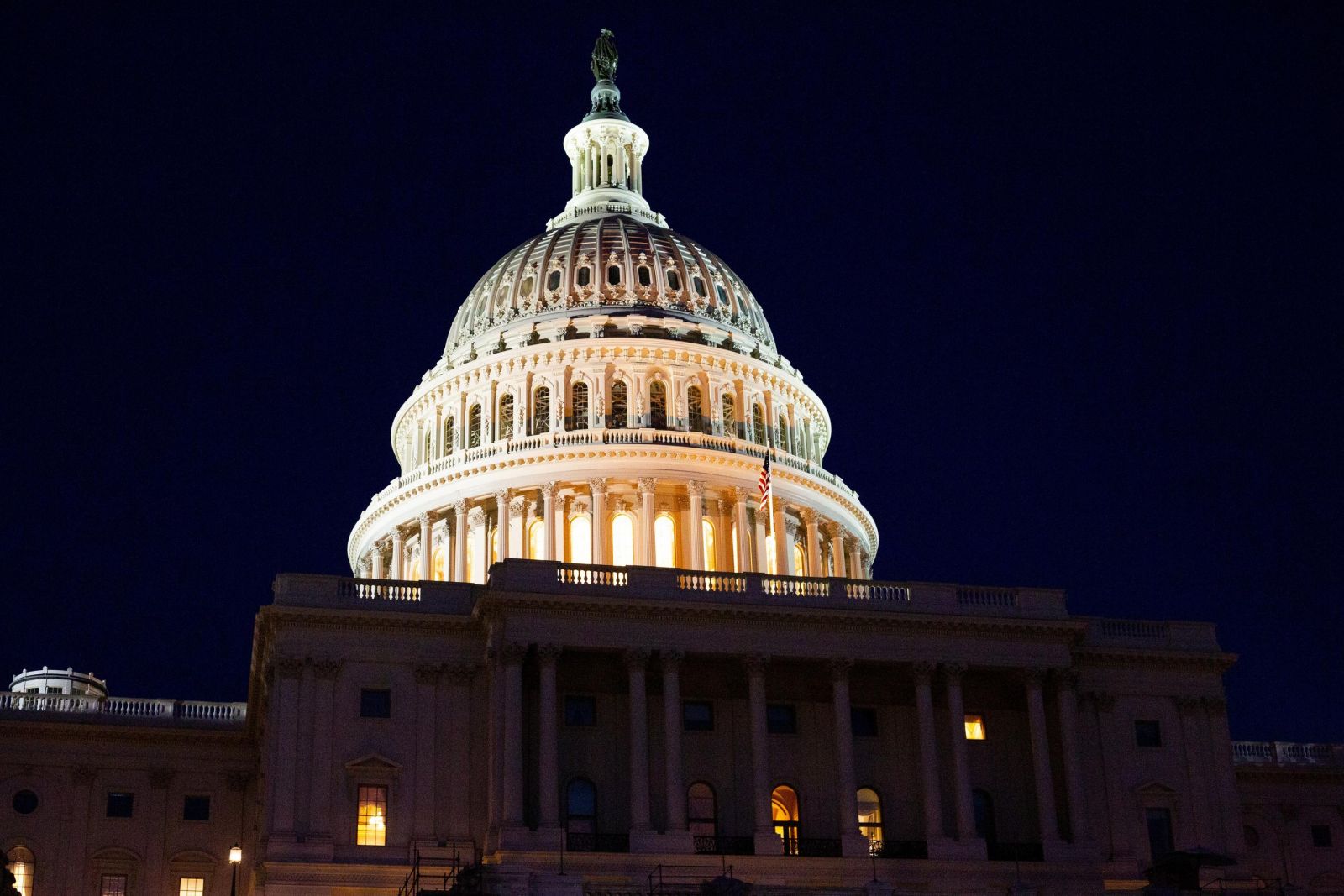
U.S. senators and Trump administration officials have reached an agreement on a massive economic stimulus bill to alleviate the economic impact of the coronavirus outbreak. The stimulus package had been expected to boost the economy with a massive infusion of aid, including a $500 billion fund to help hard-hit industries with loans and a comparable amount for direct payments of up to $3,000 to millions of U.S. families. It also included $100 billion for hospitals and health systems, along with additional money for other health care needs. A $61 billion rescue package for the aviation sector has also been discussed. Another $150 billion would go to help state and local governments fight the outbreak. The fiscal deal also follows enormous moves from the U.S. Federal Reserve to restore market confidence with limitless bond purchases and a flood of discount dollars. U.S. shares surged yesterday to see the S&P 500 close up 9.4%, its biggest daily rise since 2008, while the Dow Jones Industrial Average’s 11.4% jump was its largest advance since 1933. The World Health Organization said that New York could become the next epicentre of the pandemic. It was suggested that riders touching metal surfaces in in the subways may have accelerated the spread of the disease. Trump, who is campaigning for re-election on Nov. 3, has said he wants Americans to return to work more quickly than many medical experts had advised. He set a target of the April 12 Easter holiday, which would ease a public health clampdown intended to slow spread of the virus.
The dollar slipped for a third consecutive session as a deal to backstop the U.S. economy with a huge stimulus package promised to further ease some of the pandemic-driven skyrocketing demand for hard cash. The risk-sensitive Australian dollar jumped over the 60-cent mark for the first time in a week as news of the agreement trickled out, and then extended gains to $0.6062. While the Australian dollar is up 1.5% for the session, both it and the pound have lost more than 7% for the month as nearly everything has been clobbered by the rush for U.S. dollars. The British pound has risen to a four-day high at $1.1919 and the New Zealand dollar was 1% ahead at $0.5898. The euro lifted 0.3% to $1.0831. Against a basket of currencies, the dollar eased 0.2% to 101.43. The U.S. currency was broadly steady against the Japanese yen at 111.36 yen per dollar. Cross-currency basis swap spreads, which reflect the cost of borrowing dollars abroad, have relaxed for the euro. But they remain elevated for the yen and Australian dollar, even as the Bank of Japan and Reserve Bank of Australia tap the Fed’s funding lines for billions of short-term dollars.
British inflation fell in February, before the coronavirus crisis hit the country, and economists predict a further sharp fall in the next couple of months due to the collapse in global oil prices caused by the pandemic. Consumer price inflation fell to 1.7% in February from a six-month high of 1.8% in January, the Office for National Statistics said. Inflation is already well below the Bank of England’s 2% target, after striking its lowest in more than three years in December at 1.3%, and there was little immediate market reaction to the data released this morning. The BoE has cut interest rates to a record low of 0.1% and ramped up its bond-buying programme to help cushion the hit to the economy from coronavirus. The U.K. government announced plans to turn a conference centre into a hospital and has asked for 250.000 volunteers to help with the crisis. The UK parliament has in the meanwhile decided to close one week early as contagion fears increase.
Covid-19 cases around the world have topped 409,000, leaving 18,246 dead. Singapore and Australia are the latest to expand on strict social distancing measures designed to stymie the virus by shuttering events, bars, cinemas, religious services and other non-essential services, while India imposed a national lockdown for 21 days. In other virus developments, the U.S. could become a new hub of the outbreak, the World Health Organization warned. China prepared to lift its lockdown in Wuhan, the city at the centre of the original outbreak, while symptom-free cases suggest the country’s problems are not over. China’s government is facing the worst fiscal situation since the global financial crisis more than a decade ago, with revenue falling after the government shut down economic activity in February to curb the spread of the coronavirus. The income of central and local governments contracted 9.9% in the first two months of the year compared to a year ago. The tight fiscal conditions add to the urgency for the government to raise money from bond sales and allow a higher deficit in 2020. Stocks in Asia looked set to extend a global rally after the best session for U.S. stocks in almost a dozen years. Futures surged in Australia, Hong Kong and Japan, indicating gains could extend to a second day for Asia-Pacific shares. Oil added to yesterday’s gains. Still, about $26 trillion has so far evaporated from equity markets since mid-February. Spain recorded its highest daily increase in deaths so far, while Italy also saw a rise in fatalities after two days of declines. Ireland introduced new curbs and extended existing restrictions, as the government warned that more 400,000 jobs are at risk. Germany’s mortality rate is only 0.4% of confirmed cases, a fraction of Italy’s 9.5%. The reason is that Covid-19 has not yet hit as hard among the oldest and frailest members of Germany’s population following the government’s advice for self-isolation even between family members who do not live together. The EU’s law enforcement arm helped spearhead a global crackdown on gangsters peddling a “staggering amount” of fake products online linked to the Covid-19 virus. The action comes as consumer and antitrust agencies also target firms seeking to rip off shoppers with massive price increases for scarce items.



